INDIAN ARMED FORCES CHIEFS ON OUR RELENTLESS AND FOCUSED PUBLISHING EFFORTS

The insightful articles, inspiring narrations and analytical perspectives presented by the Editorial Team, establish an alluring connect with the reader. My compliments and best wishes to SP Guide Publications.

"Over the past 60 years, the growth of SP Guide Publications has mirrored the rising stature of Indian Navy. Its well-researched and informative magazines on Defence and Aerospace sector have served to shape an educated opinion of our military personnel, policy makers and the public alike. I wish SP's Publication team continued success, fair winds and following seas in all future endeavour!"

Since, its inception in 1964, SP Guide Publications has consistently demonstrated commitment to high-quality journalism in the aerospace and defence sectors, earning a well-deserved reputation as Asia's largest media house in this domain. I wish SP Guide Publications continued success in its pursuit of excellence.
- Operation Sindoor: Resolute yet Restrained
- India’s Operation Sindoor Sends a Clear Message to Terror and the World – ‘ZERO TOLERANCE’
- Japan and India set forth a defence cooperation consultancy framework, talks on tank and jet engines
- Terrorist Attack in Pahalgam in Kashmir: Unfolding a long surgical war against PAK
- Lt General Pratik Sharma takes over Command of Indian Army's Northern Command
Canals, Cycles & Cathedrals
The Netherlands is yet another European state to have swung to the right after the far-right Freedom Party (PVV) won the largest number of seats in the national elections. The collapse of the Dutch government of Prime Minister Mark Rutte highlights how the issue of immigration has become a critical dynamic of European politics.
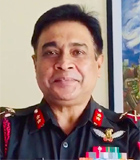 |
The Author is former Chief of Staff of a frontline Corps in the North East and a former helicopter pilot. He earlier headed the China & neighbourhood desk at the Defence Intelligence Agency. He retired in July 2020 and held the appointment of Addl DG Information Systems at Army HQ. |
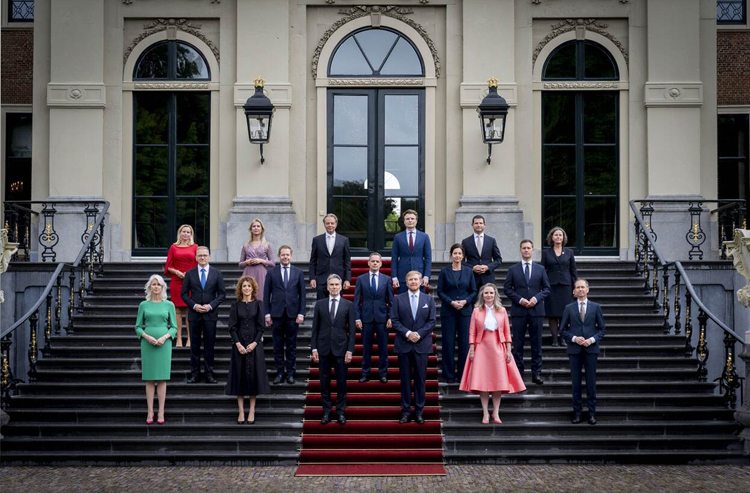
Amsterdam is a city of canals, cycles and cathedrals. These were the first thoughts as I surveyed the city, standing in front of the Centraal Train Station with the majestic Basilica of Saint Nicholas featuring a mix of neo-Baroque and neo-Renaissance style architecture in the backdrop. Many canal cruise services offered sight-seeing services. Cycles were all around. Amsterdam is flat like a pancake and one can cycle without any effort. There are no hills at all. The city is full of bike paths and very well organised cycling infrastructure. Interestingly someone mentioned that when Dutch people are drunk, they may struggle walking, but never cycling. They cycle since childhood going to school and cycle as adults going to work. One has to be careful while walking as well as driving;cyclists have the right of way.
Historical Origins and Colonial Legacy
Of course, the canals pre-date the cycles. Amsterdam takes its name from the 'Dam' that was built on the Amstel river in the thirteenth century. Three rings of canals made this man-made city four times bigger than the original. Queer as it may sound, Amsterdam is the only old city in the world where the medieval centre is not a museum but a Red Light District. While that may be the origins, the Dutch became a major colonial power in the seventeenth and eighteenth centuries, the most prominent being the East Indies territories now called Indonesia.
The Dutch became a major colonial power in the seventeenth and eighteenth centuries, the most prominent being the East Indies territories now called Indonesia
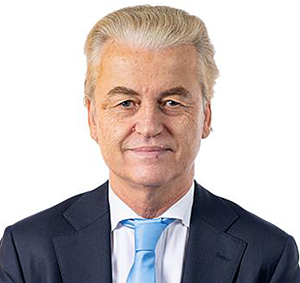
Far-right leader of the Party for Freedom (PVV)
Like all aspiring colonial powers of that era, India was high on the radars of the Dutch merchants like those of the British East India Company. But, on August 10, 1741, in the Travancore-Dutch War, King Marthanda Varma's forces defeated the Dutch East India Company's forces. The Dutch never recovered from that defeat and never posed a colonial threat to India. Two centuries later, another Indian helped to snuff out the Dutch colonial empire altogether from the East. On Nehru's instructions, ace pilot Biju Patnaik along with his wife Gyan reached Jakarta on July 21, 1947 and flew former Indonesian Prime Minister Sutan Sjahrir and Vice-President Mohammad Hatta held in Dutch captivity out of Java to India via Singapore evading their air-defence.
Post-WW II, like rest of Europe, Netherlands transformed from a relatively religious society that was segregated along different socio-cultural pillars, mainly Catholic, Protestant and Socialist, to become one of the most secularized countries in Europe, characterised by progressive sexual morality, which allowed for the world's first legalisation of same-sex marriage in 2001. Similar progressive successes contributed to a Dutch self-image as a "guiding nation". But that tolerant and open society is today fraying at the seams.
Transformation, Migration and Integration
From the early 1980s onwards, many citizens in the Netherlands were critical of the migrants and even supported voluntary remigration. Similarly, the Dutch post-electoral surveys (from 1994 onward) consistently showed that a majority of the population preferred that immigrants assimilate rather than retain their own culture. In September 1991, in the aftermath of the Salman Rushdie affair and the first Islamic scarf controversy in France, there began a debate in the Netherlands about the non-integration of Muslim immigrants "from Morocco and from Turkey," by contrasting cultural relativism and Islamic practices with the universal superiority of three liberal principles: separation of church and state, freedom of expression, and non-discrimination, notably vis-à-vis women.
Post-electoral surveys consistently showed that a majority of the population preferred that immigrants assimilate rather than retain their own culture
The friction between the native Dutch population and the immigrants who came from an alien culture and pointedly chose not to assimilate, surfaced in November 2004. Dutch filmmaker Theo van Gogh was murdered by the Dutch-Moroccan Mohammed Bouyeri, a crime allegedly triggered by the broadcasting of Van Gogh's and Ayaan Hirsi Ali's short movie 'Submission' earlier that year, in which they critically address the subordinate position of Muslim women. Soon after the murder, which again stirred debate about the integration of Muslims in Dutch society, it turned out that far-right leader Geert Wilders also figured on the "death list" of Bouyeri's sympathisers. Ever since, Wilders sleeps in safe houses and lives under strict round-the-clock police protection.
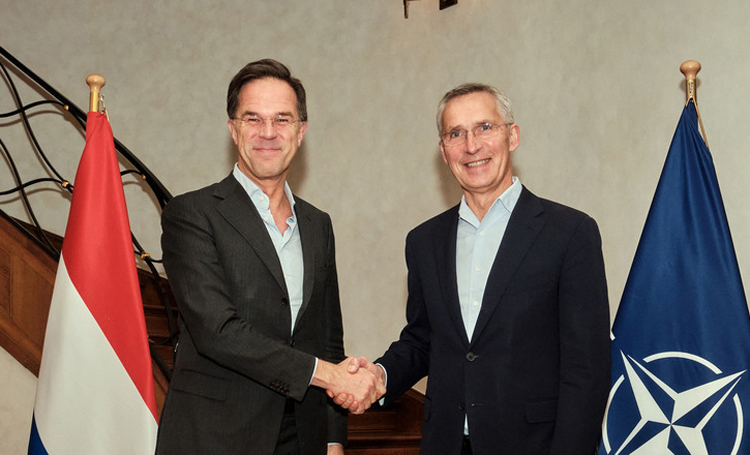
Rising Tensions and Political Shifts
Geert Wilders' Party for Freedom (PVV) emerged as the largest grouping in the November 2023 elections held in the backdrop of the war in Gaza. After seven months of hectic parleys, compromises and gruelling negotiations that saw Wilders forsake his own Prime Ministerial ambitions at the altar of the larger goal of ushering in a government that works for the core programmes of PVV, a new coalition under Dick Schoof, a former intelligence chief with no party affiliations took office on July 2, 2024.
Dutch filmmaker Theo van Gogh was murdered by the Dutch-Moroccan Mohammed Bouyeri, a crime allegedly triggered by the broadcasting of Van Gogh's and Ayaan Hirsi Ali's short movie 'Submission'
The Netherlands has long exercised an outsized influence in the European Union. Mark Rutte, the departing Prime Minister, will become the next Secretary General of NATO, and so will continue to wield influence. But the new cabinet is packed with right wing leaders from Wilders' PVV, including the crucial position of minister of asylum and migration. After winning the election, Wilders seemed to moderate some of his most extreme views, including seeking a ban on mosques and Islamic schools and a Dutch exit from the European Union. Critics have accused Wilders of being pro-Russia.
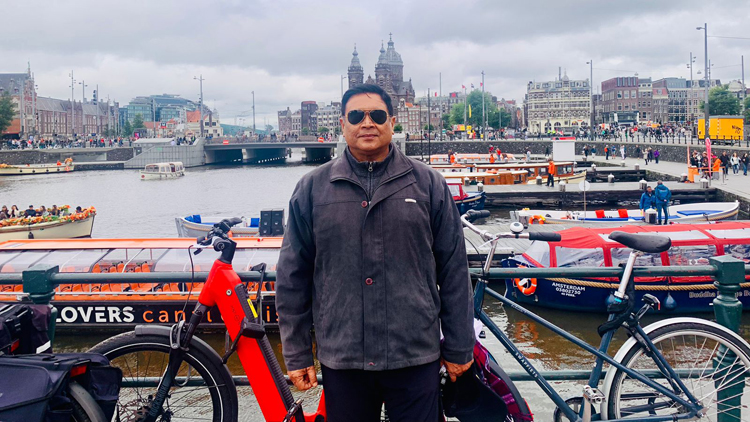
Europe is experiencing a seismic turbulence as it fights economic decline and mounting national debts alongside the debilitating impact of the two-years-old Ukraine war that has severely impacted its industrial prowess with escalating energy costs. However, the issue of migrants and the lack of their integration into the European society and culture has overtaken all else. Last year, Italy voted in a hard-right leader Georgia Meloni and Slovakia elected a populist president with ties to Prime Minister Viktor Orban of Hungary. In French snap elections, the far right under Marine Le Pen surged in the first round of legislative elections and only a coming together of the left and the centre for the second round on July 5 kept it at bay from power. The war in Gaza and the often-violent pro-Palestine rallies across European capitals portend difficult times ahead, as the arson and violence surrounding Paris as it hosts the Olympics suggests.
Europe is experiencing seismic turbulence as it fights economic decline and mounting national debts alongside the debilitating impact of the two-years-old Ukraine war
Long seen as a bastion of liberalism, the Netherlands joins the long list of European countries that have experienced swings to the right. As outgoing Prime Minister Rutte cycled his way out on relinquishing office after 14 years, the idyllicand celestial nation of canals, cycles and cathedrals maybe bracing for a classic 'Clash of Civilizations' as Samuel Huntington portrays in his 1996 tome.





